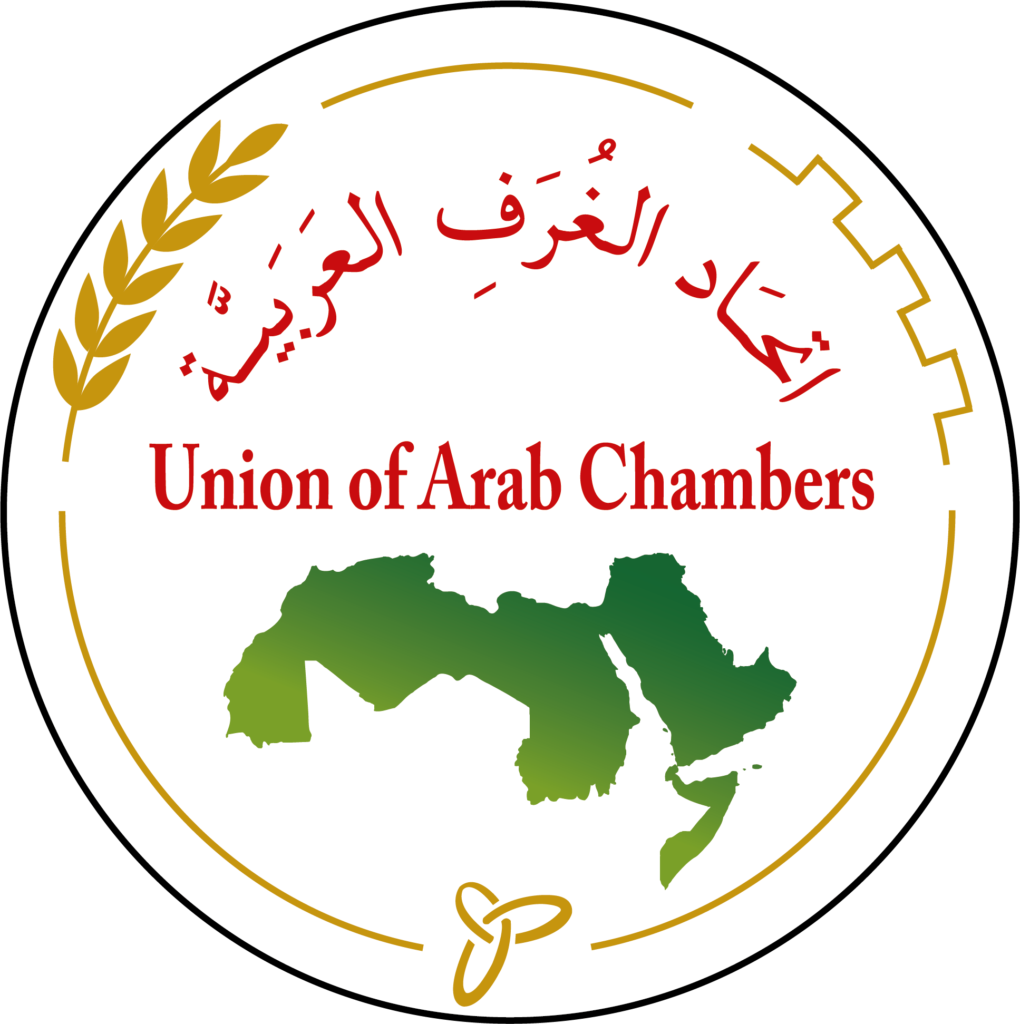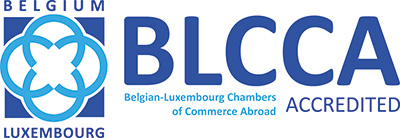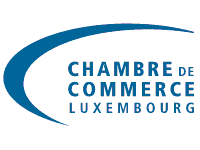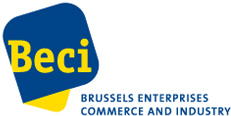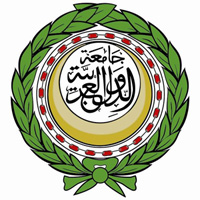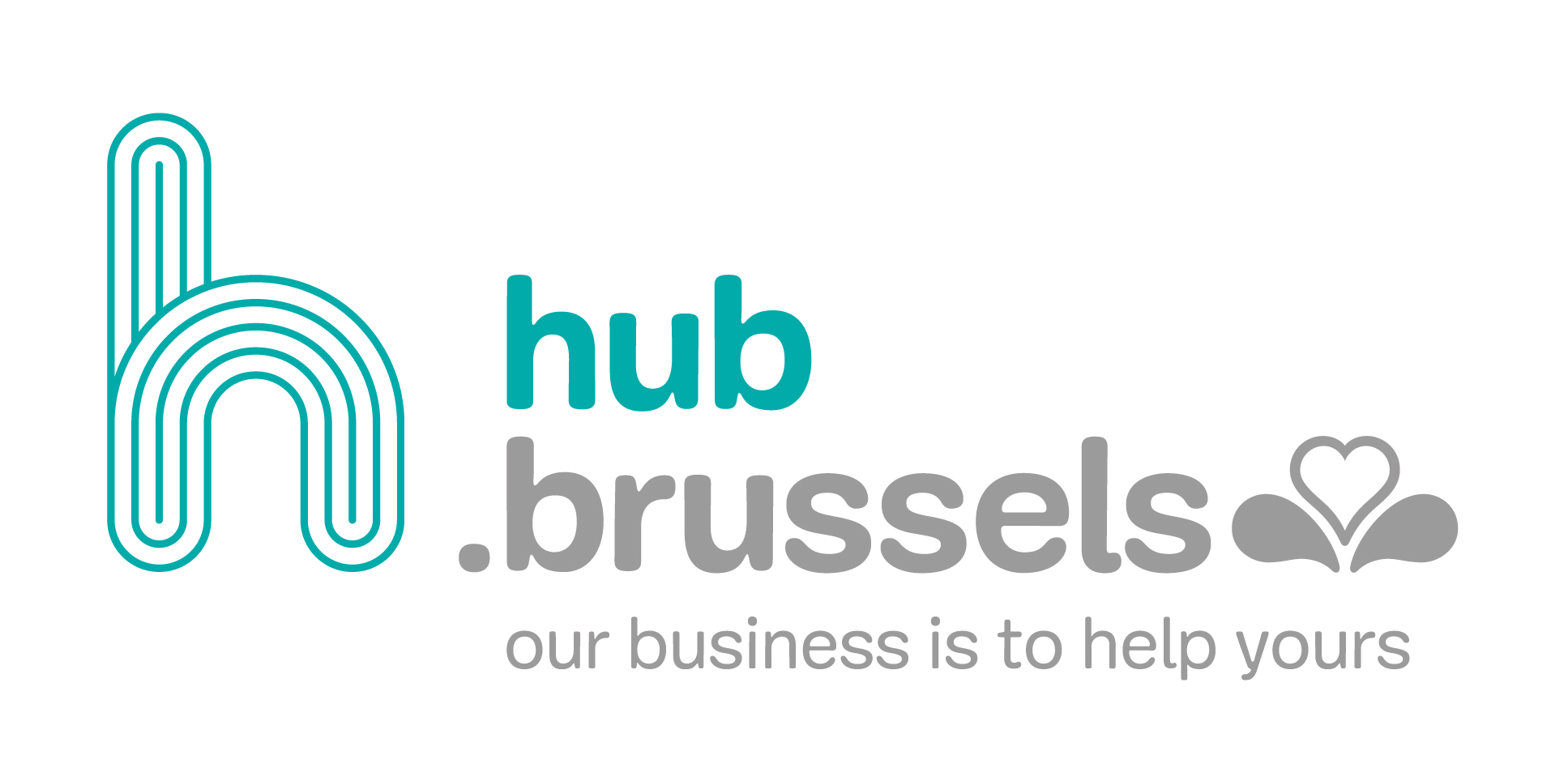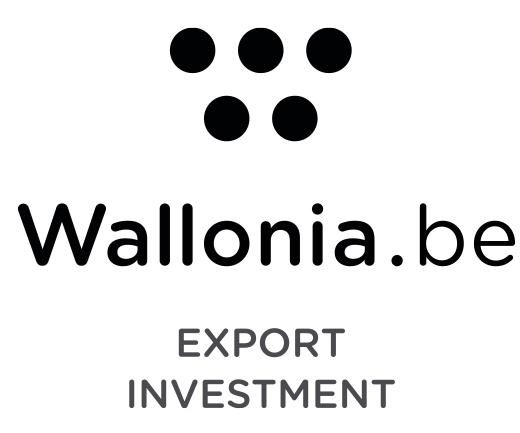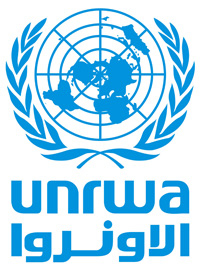6th edition 2013, October-December
The Ins and Outs of Belgium
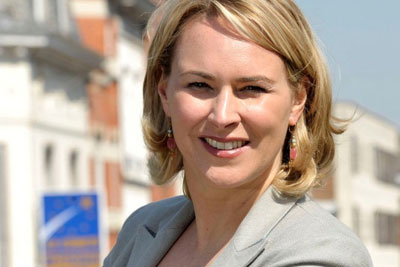
An interview with Mrs. Céline Fremault, Minister of the Government of the Brussels-Capital Region, responsible for Economy, Employment, Scientific Research and Foreign Trade
After Minister Marcourt presented the Walloon region to the ABLCC readership in the last edition of the Chamber’s newsletter, it is now the turn for Mrs. Céline Fremault, Minister of the Government of the Brussels-Capital Region responsible for Economy, Employment, Scientific Research and Foreign Trade, to discuss ‘her’ region and reflect on its trade and investment relations with the Arab world. And it must be said, she does so in a spirit of enthusiasm that aptly demonstrates her appetite for further enhancing the Arab-Brussels partnership. Discover a minister ready to give a firm boost to commercial relations with a region on the other side of the Mediterranean brimming with opportunity and called the Arab world.

Dear Minister Fremault, let’s start by refreshing the memories of our readers. In Belgium, regional governments have important competences in the field of economy. On the practical level, what does this mean for foreign business people looking to develop trade and investment relationships with Belgian partners?
A little bit of theory
The Flemish Region, the Brussels-Capital Region and the Walloon Region have powers relating to the economy, employment, agriculture, water policy, housing, public works, energy, transport (except Belgian Railways), the environment, town and country planning, nature conservation, credit, foreign trade, supervision of the provinces, communes and inter-communal utility companies. They also have powers relating to scientific research and international relations in those fields.
Céline Fremault: “Benefitting from an important degree of autonomy in the field of economy, Belgian regions are able to develop a policy that is genuinely tailored to the needs and specificities of each. It also allows foreign companies and investors to acquire a deeper understanding of the economic fabric that makes up each particular region. But I would like to underscore that this does not in any manner prevent the regions to collaborate in economic matters, which is of course of crucial importance when foreign trade is concerned. Consider our economic representatives who work in the Belgian embassies, for example: they are employed not by the Belgian federal state but by the regions, but more often than not one economic attaché covers several regions, depending on where they are located. Furthermore, the regions also regularly pool forces for the organization of all sorts of activities related to foreign trade.”
What are the most important pillars of the economy of the Brussels Capital Region (BCR)? And how does the latter distinguish itself from other economies in the region?
Céline Fremault: “The Brussels region finds itself in a very particular economic situation. Until the beginning of the 1960’s, Brussels genuinely was an industrial city. Today, we encounter an entirely different Brussels, one in which services account for eighty-five per cent of the economy, and ninety-five per cent of the economic fabric is made up by extremely small, small and medium sized companies. These changes are of course due to the important strategic position Brussels occupies on the European and international levels.”
And is it an attractive destination for Arab investors?
I see a continuously growing role for a large number of Brussels business men and women originating from the Arab world who are keen on preserving relations with their countries of origin. Their thorough knowledge of the languages and cultures of both sides allows them to act as facilitators and cultural mediators, which is why I think their presence in Brussels is an enormous advantage for developing and sustaining solid relationships with the Arab world.
Céline Fremault: “I would even say it is an excellent destination for Arab investors. First of all, it is the capital of the European Union, and in that capacity it is an extremely important decision centre on a European as well as on an international level. Also in its role as a centre for international business, Brussels definitely is a city to be reckoned with. Each time I visit foreign countries in my capacity of Brussels Minister of Foreign Trade and Economy, I am pleasantly surprised by the importance attached to Brussels as a centre of international affairs by foreign business people, who are deeply aware of the fact that a lot of important decisions are made here.
Moreover, seeing that its location allows it to reach 500 million consumers, Brussels can truly call itself “The Gateway to Europe”. It is a well known fact among foreign investors that Brussels offers the ultimate testing ground for new products and services, as it is sitting on the crossroads of the Latin and German cultures. And then I should also mention the fact that a number of measures have been developed to the benefit of investors, including, for example, beneficial tax rates.
But allow me to come back to another important advantage offered by the Brussels Region on the cultural level – which after all is an extremely important dimension when we’re talking foreign trade relations. Brussels benefits from the enormous advantage of having a pool of multilingual employees at its disposal who are used to working in an international environment. And with regard to trade and investment relations with Arab countries in particular, I see a continuously growing role for a large number of Brussels business men and women originating from the Arab world who are keen on preserving relations with their countries of origin. Their thorough knowledge of the languages and cultures of both sides allows them to act as facilitators and cultural mediators, which is why I think their presence in Brussels is an enormous advantage for developing and sustaining solid relationships with the Arab world.”
You identified making Brussels “a city of innovation” as an important goal for you to achieve during your mandate as a minister. This might be of huge interest to the Arab world, as transforming Arab economies are currently welcoming innovative technologies in a wide array of sectors. What are the strengths of the BCR in this field?
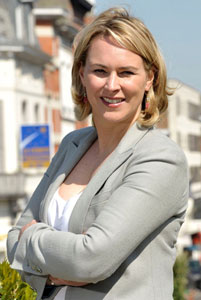 Céline Fremault: “Brussels is currently heavily investing in the development of smart specialisation that builds on its existing strengths in ICT, life sciences and the environment. We are according a lot of attention to the development of such research related to intelligent economy and niche sectors, which we feel could offer us an enormous advantage in the future.
Céline Fremault: “Brussels is currently heavily investing in the development of smart specialisation that builds on its existing strengths in ICT, life sciences and the environment. We are according a lot of attention to the development of such research related to intelligent economy and niche sectors, which we feel could offer us an enormous advantage in the future.
And let’s not forget that, as the city which welcomes most university students in Belgium, Brussels harbors a number of high quality universities.” (This is a fact certainly attested to by Professor Englert of the Université Libre de Bruxelles recently winning the Nobel Prize for Physics, together with British physicist Peter Higgs, ed.)
In a recent interview published in “Entreprendre”, the monthly magazine of the Brussels Chamber of Commerce, you identified boosting the networks of the BCR in foreign countries as one of the top priorities for the near future. Is anything on the agenda with regard to the Arab world in particular?
Céline Fremault: “We are very well represented in the Arab world, be it directly or indirectly, through our colleagues from the Flemish or Walloon regions. We are present in Algeria, Kuwait, Lebanon and the Palestinian Territories, and are also represented in Egypt, Iraq, Libya, Morocco, Tunisia, Saudi Arabia and the United Arab Emirates. The number of actions we undertake with regard to the Arab world is also continuously increasing: in March 2014 there will be the Princely Mission to Saudi Arabia and Oman organized by the Belgian Foreign Trade Agency, and in the near future Brussels Invest & Export (the Foreign Trade and Foreign Investments Service of the Brussels Regional Capital, ed.) will be participating in numerous conferences in the Arab world: GITEX Technology Week and Arab Health in Dubai are two events that come to mind. We also receive a lot of invitations to tender and invitations from buyers from Lebanon, Jordan, Algeria and the Palestinian Territories, amongst others, and our expertise in the public transport sector, to give one example, is in very high demand in the Arab world. Furthermore, there are a number of countries, as Algeria and Morocco, who are extremely important economic partners with whom we are in constant contact.”
You recently headed an economic mission of the BCR to Morocco. What are the most promising areas for collaboration?
Céline Fremault: “The economic mission to Morocco we organized in September was a huge success, with forty companies and over fifty persons accompanying us there. Here also, we were delighted to discover that two thirds of participants were Brussels business people of Moroccan origin who want to do business with their country of origin. As I mentioned earlier, we support them to the fullest extent possible in their undertakings, as they are able to play a role that greatly benefits the development of relations between Brussels and the Arab countries.
The Brussels business community in general is already very well represented in the Moroccan market. Transurb Technirail, for example, has played an important role in the development of the tram network in Casablanca, and BESIX is involved in the construction of the Tanger Med II Harbor. The majority of participants to the mission have an expertise in services, new technologies or consultancy, and it was very interesting to learn from and exchange expertise with the Moroccan business people we met. In the end, several participants to the mission even ended up staying in Morocco a little while longer, because they were able to get appointments they never expected to be able to arrange so soon. We also had very good contacts with the Moroccan Ministers of Transport and Employment.”
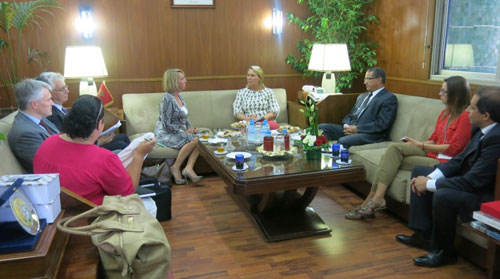
As you already briefly mentioned, a next important mission to the Arab world in which the BCR will participate is going to Saudi Arabia and Oman in March 2014. What sectors and topics do you intend to accord particular attention to during this princely mission?
Morocco has a very similar view on the importance of female entrepreneurship, and it was very valuable for both sides to exchange experiences on the matter. For me, it was touching to see so many Brussels and Moroccan business women in one room talking business, and I intend to continue collaborating with our Moroccan partners on this topic.
Céline Fremault: “A wide range of sectors are occupying an important position in our relations with Saudi Arabia and Oman. There are the sectors of civil engineering, infrastructure, consultancy, legal services, health care, the luxury goods sector, … Business services in particular will retain a great deal of our attention. We are currently working very hard on the preparation of the mission, and we are delighted to notice that there is a lot of interest from Brussels companies to participate. Indeed, I feel the mission will be crucial for the future development of trade and investment relations between the Belgian regions and Oman and Saudi Arabia.”
You are the first Minister of the BCR to accord particular attention to the role of female entrepreneurs in Brussels. Why is it important to provide women entrepreneurs in the BCR with specific support structures? Is this a topic that you also tend to raise in your contacts with foreign countries, and do you see possibilities for collaboration with the Arab world in this regard?
Céline Fremault: “I noticed that a lot of initiatives and measures had been put into place to support Brussels entrepreneurs in general, but none of these approached the question from a gender point of view. Yet today, there is a huge lack of female entrepreneurs in the Brussels Region, and this is a field in which we have a lot of catching up to do. We have several projects running at the moment to encourage women to start doing business and to assist them in their undertakings.
I had the opportunity to focus on this particular topic during our mission to Morocco, where they have a very similar view on the importance of female entrepreneurship. Very active in this field, Morocco has been able to take a number of positive steps with regard to the role of business women, and it was very valuable for both sides to exchange experiences on the matter. For me, it was touching to see so many Brussels and Moroccan business women in one room talking business, and I intend to continue our collaboration with our Moroccan partners on this topic.
I definitely see possibilities for collaboration with other Arab countries in this regard as well, and I will work hard to make sure that business women who until now have been unfamiliar with the Arab world, will join us during our economic missions to discover the opportunities that loom large on the Arab horizon.“
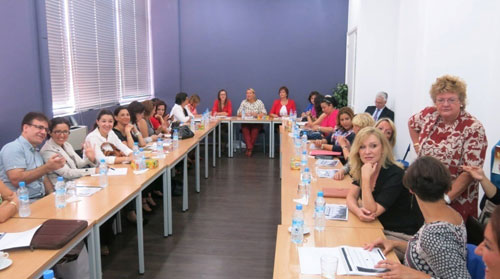
To conclude, how do you see the future of the trade and investment relationship between the BCR and the Arab world?
Céline Fremault: “It is clear to me that Arab world is a crucial partner for the Brussels Region, as well as for Belgium and the European Union as a whole. Trade statistics show that overall Belgian exports to the Arab world increased by more than 11% in 2012, a positive trend that is continuing into 2013. Imports from the Arab world, on the other hand, have been slightly decreasing during the first six months of 2013 (the decline of Arab imports in Belgium during this period is situated around 8%, ed.), but I am convinced this is a temporary phenomenon, related to the political crises certain Arab countries are currently witnessing. Moreover, I feel that we shouldn’t focus too much on import-export figures, but accord all the more attention to the development of a two-street relationship based on shared interests, trust, and quality products and services that benefit both sides. And it is obvious that beautiful opportunities for collaboration exist in sectors of engineering, architecture, transports and health care, to name just a few.
At Brussels Invest & Export, we will continue our efforts to further develop our relationship with this region. As a matter of fact, I feel that actors as Chambers of Commerce also have an important role to play in this regard: as facilitator of contacts between business people, to assure a good follow up to economic missions together with the regions, and to forge relationships that are solid and long-lasting.”
With these encouraging words in mind, we let a Minister with a great vision for a region that maybe small in size, but is all the larger in reach and potential, get back to work.
Want to know more?
www.brussels.irisnet.be/en/
www.invest-export.irisnet.be/en/
www.innoviris.be




















